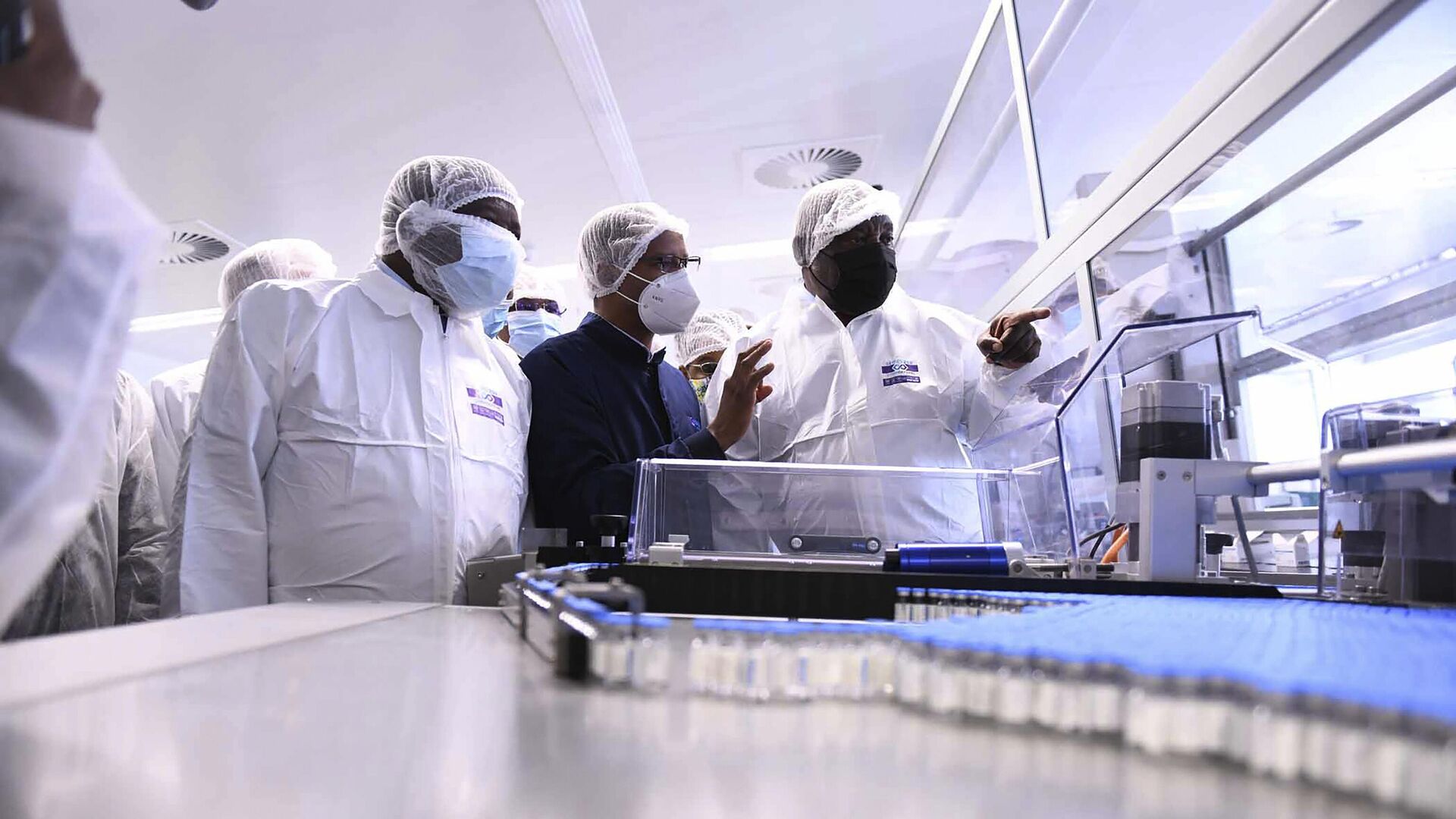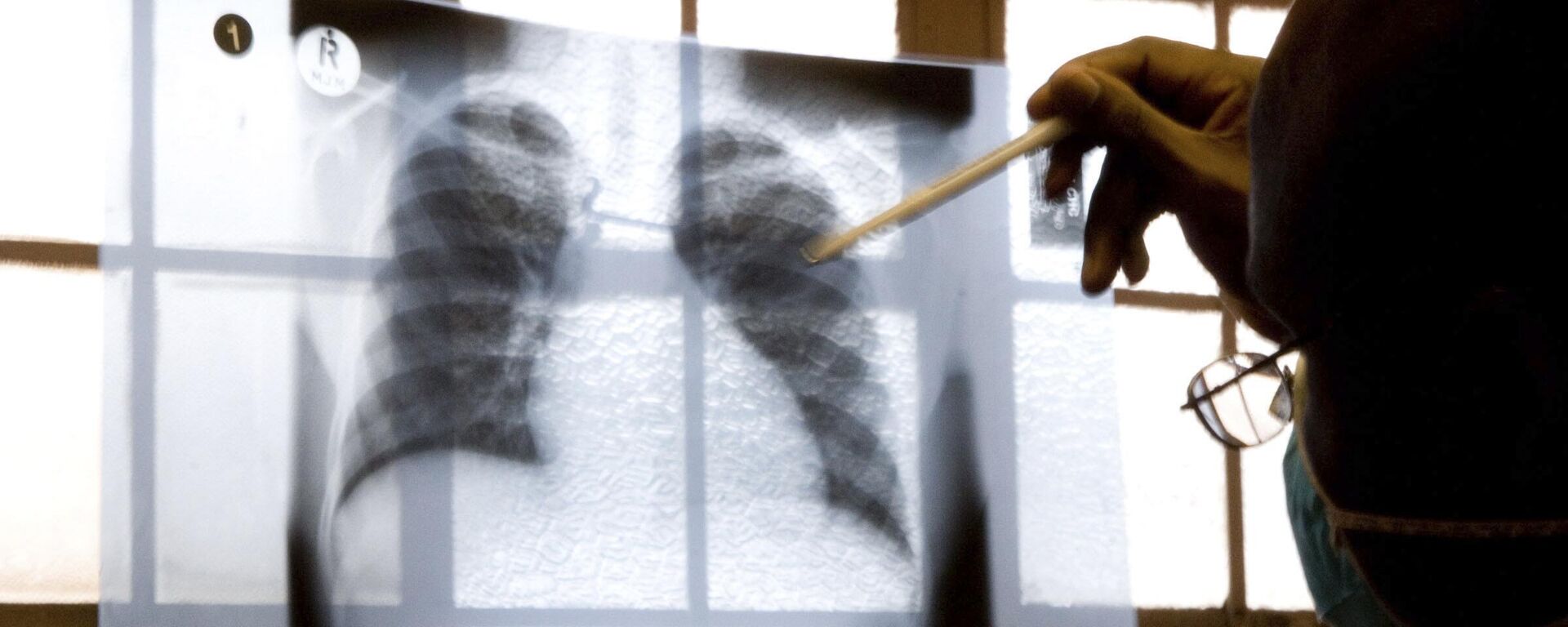https://en.sputniknews.africa/20230907/big-pharma-exploited-desperation--bullied-s-africa-into-paying-more-for-covid-19-vaccines-ngo-1061937463.html
Big Pharma 'Exploited Desperation' & Bullied S. Africa into Paying More for COVID-19 Vaccines: NGO
Big Pharma 'Exploited Desperation' & Bullied S. Africa into Paying More for COVID-19 Vaccines: NGO
Sputnik Africa
South Africa has been one of the hardest-hit countries by the coronavirus pandemic on the continent, with more than 4 million confirmed cases and more than... 07.09.2023, Sputnik Africa
2023-09-07T16:09+0200
2023-09-07T16:09+0200
2023-09-07T16:09+0200
southern africa
south africa
johnson & johnson
european union (eu)
african union (au)
covid-19
medicine
sub-saharan africa
international
economy
https://cdn1.img.sputniknews.africa/img/07e7/09/07/1061940189_0:0:3072:1728_1920x0_80_0_0_14294e23d94de3227c1cce9166db9868.jpg
A report by a local advocacy group revealed that South Africa paid more for COVID-19 vaccines than some wealthy countries, as it faced pressure from big pharmaceutical companies to sign contracts that favored their interests.The report, released by the Health Justice Initiative (HJI), a South African nonprofit that fights for public health equality, showed that the country's health authorities agreed to pay between 15 and 33 percent more per dose for COVID-19 vaccines from Johnson & Johnson (J&J) and Pfizer-BioNTech than the European Union and the African Union.The HJI report was based on contracts that the organization obtained from the government after winning a court case last month. HJI said that the contracts showed how South Africa's "sovereignty was bartered for scarce supplies" and how "pharmaceutical companies held us to ransom."HJI director Fatima Hassan told the media that South Africa had been "bullied" into accepting these terms by the big pharmaceutical companies.According to the report, South Africa was liable for payments of at least $734m, including advance payments of almost $95m, with no guarantees of timely delivery. The report also noted that South Africa had to waive its rights to challenge any intellectual property claims or disputes related to the vaccines.In addition, Foster Mohale, spokesperson for South Africa's Department of Health, told the media that the department had no choice but to sign the contracts to save lives.Hassan said she hoped more countries would publish their contracts with big pharmaceutical companies, so the world could see how the industry really does business. She also called for more transparency and accountability from multinational companies.
https://en.sputniknews.africa/20230902/scientist-sheds-light-on-south-africas-new-tuberculosis-vaccine-1061804546.html
southern africa
south africa
Sputnik Africa
feedback@sputniknews.com
+74956456601
MIA „Rossiya Segodnya“
2023
Muhammad Nooh Osman
https://cdn1.img.sputniknews.africa/img/07e7/04/0a/1058467512_0:0:1280:1280_100x100_80_0_0_ec723833bcbfcaed2e21952965ad99e4.jpg
Muhammad Nooh Osman
https://cdn1.img.sputniknews.africa/img/07e7/04/0a/1058467512_0:0:1280:1280_100x100_80_0_0_ec723833bcbfcaed2e21952965ad99e4.jpg
News
en_EN
Sputnik Africa
feedback@sputniknews.com
+74956456601
MIA „Rossiya Segodnya“
Sputnik Africa
feedback@sputniknews.com
+74956456601
MIA „Rossiya Segodnya“
Muhammad Nooh Osman
https://cdn1.img.sputniknews.africa/img/07e7/04/0a/1058467512_0:0:1280:1280_100x100_80_0_0_ec723833bcbfcaed2e21952965ad99e4.jpg
southern africa, south africa, johnson & johnson , european union (eu), african union (au), covid-19, medicine, international, economy
southern africa, south africa, johnson & johnson , european union (eu), african union (au), covid-19, medicine, international, economy
Big Pharma 'Exploited Desperation' & Bullied S. Africa into Paying More for COVID-19 Vaccines: NGO
Muhammad Nooh Osman
Writer/Editor
South Africa has been one of the hardest-hit countries by the coronavirus pandemic on the continent, with more than 4 million confirmed cases and more than 102,500 deaths, according to the World Health Organization (WHO). The country has vaccinated about two-thirds of a million of its population of nearly 60 million people.
A report by a local advocacy group revealed that South Africa paid more for COVID-19
vaccines than some wealthy countries, as it faced pressure from big pharmaceutical companies to sign contracts that favored their interests.
The report, released by the Health Justice Initiative (HJI), a South African nonprofit that fights for public health equality, showed that the country's health authorities agreed to pay between 15 and 33 percent more per dose for
COVID-19 vaccines from Johnson & Johnson (J&J) and Pfizer-BioNTech than the European Union and the African Union.
The HJI
report was based on contracts that the organization obtained from the government after winning a court case last month. HJI said that the contracts showed how South Africa's "sovereignty was bartered for scarce supplies" and how "pharmaceutical companies held us to ransom."
"The terms and conditions are overwhelmingly one-sided and favour multinational corporations. This placed governments in the Global South, and in turn, the people living in these countries, in an unenviable position of having to secure scarce supplies in a global emergency (2020-2022) with unusually hefty demands and conditions," the report said.
HJI director Fatima Hassan told the media that South Africa had been "bullied" into accepting these terms by the big pharmaceutical companies.
"Amid a deadly pandemic, when scarce vaccines were only going to the richest countries, the companies exploited our desperation," she said.
According to the report, South Africa was liable for payments of at least $734m, including advance payments of almost $95m, with no guarantees of timely delivery. The report also noted that South Africa had to waive its rights to challenge any intellectual property claims or disputes related to the vaccines.
In addition, Foster Mohale, spokesperson for South Africa's Department of Health, told the media that the department had no choice but to sign the contracts to save lives.
"I wouldn't say we were bullied, but we were in a catch-22 situation to save lives of South Africans against all odds," he said. "The Department entered into these agreements to secure vaccine doses to protect the lives of South Africans against the deadly virus which claimed more than hundred thousand lives in South Africa."
Hassan said she hoped more countries would publish their contracts with big pharmaceutical companies, so the world could see how the industry really does business. She also called for more transparency and accountability from multinational companies.



